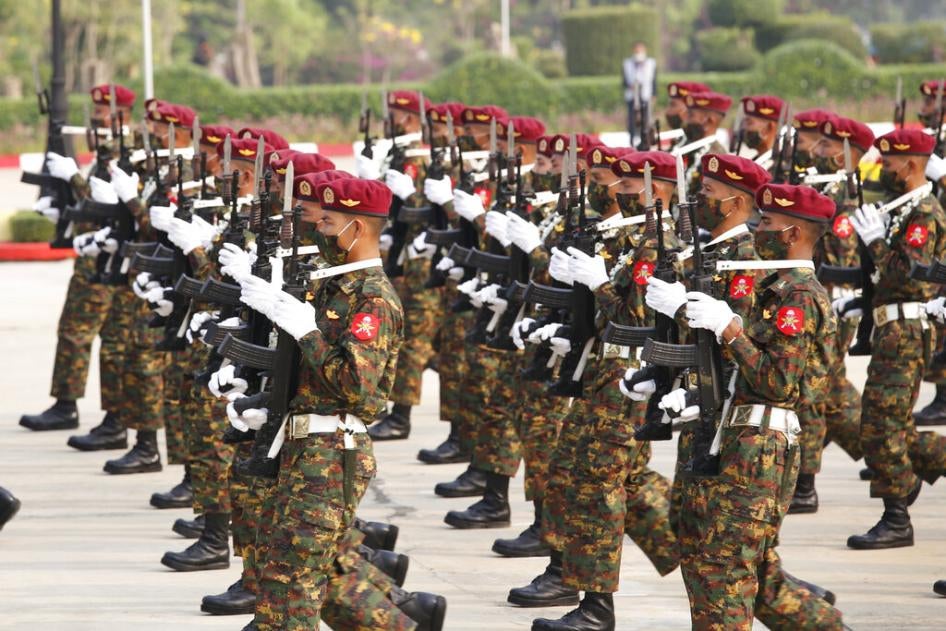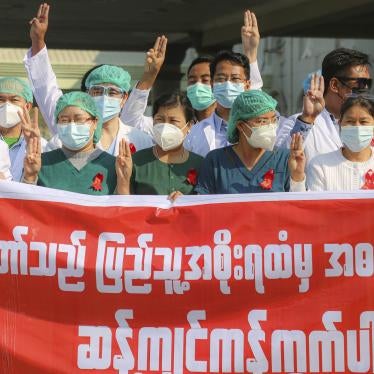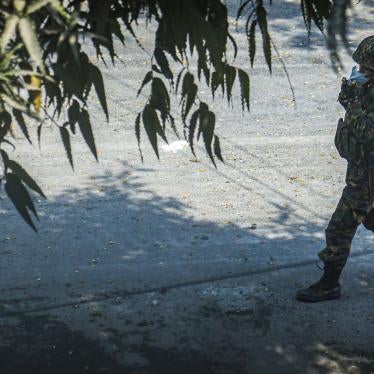Japan was one of the first governments to issue a statement after the Myanmar military staged a coup on February 1 last year.
Within hours of events unfolding in Naypyitaw, the Japanese leadership expressed “grave concern” and called for the release of those detained by security forces, including President Win Myint and State Counsellor Aung San Suu Kyi.
Following its swift condemnation, the Japanese government took further action by halting new non-humanitarian development projects, while allowing existing aid projects to continue.
Then on March 28, Japan’s defence ministry issued a joint statement with 11 allies criticising the military’s use of force against “unarmed civilians.” Japan even voted in favour of a Myanmar resolution at the United Nations General Assembly in June, a major shift from its repeated abstentions since 2017.
All this begs the question: why does the Japanese government continue to train the Myanmar military? The Tatmadaw, along with other Myanmar security forces, has since the coup killed more than 1,400 people, detained over 10,000, and intensified abusive military operations in ethnic minority areas.
Not only do Japan’s ongoing ties with the Tatmadaw contradict its condemnation of the coup, but they also undermine the international community’s efforts to hold the generals accountable for crimes against humanity and other abuses.
Since 2015, Myanmar military cadets have been studying at Japan’s National Defense Academy, receiving both academic and military training. The program is authorised by the defence minister under article 100-2 of the Self-Defense Forces Act, which permits training and educating foreign nationals in Defense Ministry facilities.
In December, a defence ministry official told Human Rights Watch that eight cadets from Myanmar were attending the academy, and at least two of them joined after the coup. The academy’s curriculum includes combat and the use of firearms.
In addition to the cadets, two Tatmadaw officers are being trained at the Japan Ground Self-Defense Force Training, Evaluation, Research and Development Command, and at the Japan Air Self-Defense Force Command and Staff College, according to a defence ministry document obtained by Human Rights Watch.
Another defence ministry official said that the program is designed to bring change from within the Tatmadaw by showing cadets, who are expected to become officers, how Japan’s armed forces operate under strict civilian control. However, the official also conceded that the ministry does not keep track of the career paths the trainees take after the program, meaning that they do not monitor or evaluate whether this actually happens.
The Japanese government should simply look at the Tatmadaw’s long record of human rights abuses and absence of deference to civilian authority and recognize that this program is not going to bring about the reforms they say it will.
In August 2017, two years after Japan began the program, the Myanmar military under the current junta leader and commander-in-chief, Senior General Min Aung Hlaing, carried out crimes against humanity and possible genocide against ethnic Rohingya in Rakhine State, forcing more than 740,000 to flee to Bangladesh.
At least 600,000 Rohingya who remained in Myanmar are confined to camps and villages under guard of local authorities and security forces, under conditions that amount to the crime against humanity of apartheid.
Even before 2017, in long-running conflicts with ethnic armed groups, the Myanmar military has for many years committed summary killings, rape, indiscriminate shelling, torture, arson, and other abuses with impunity.
And now, six years after the program began, Myanmar is in turmoil because of the Tatmadaw’s coup.
The Japanese government should immediately suspend the program and cut defence ties with the Tatmadaw, as New Zealand and Australia, Japan’s regional allies, did soon after the coup. Otherwise Japan risks being complicit in the Tatmadaw’s atrocities.










